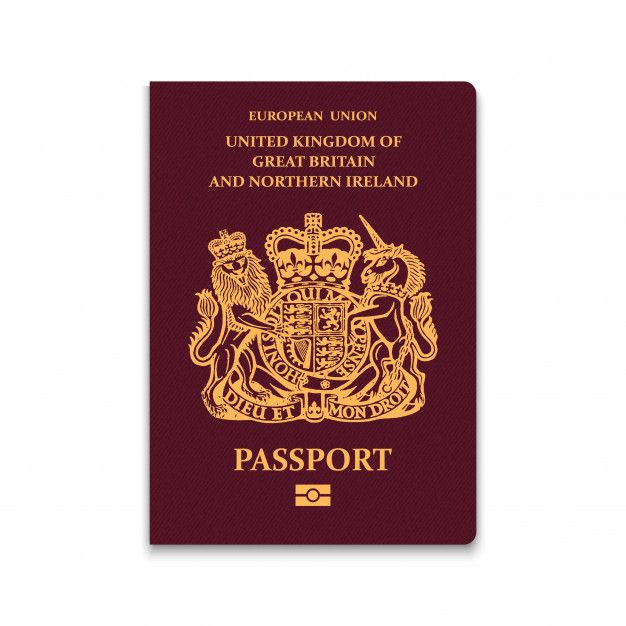1. Rising Scrutiny on Nigerian Visa Applicants
Recent months have seen the UK government ramp up scrutiny of visa applications from countries like Nigeria, Pakistan, and Sri Lanka. Tied to concerns about overstaying and asylum-seeking, these measures could significantly alter outcomes for Nigerian students and travelers.
- The Immigration White Paper (“Restoring control over the immigration system”), published in May 2025, proposes several reforms: tighter compliance rules for universities, cutting graduate post-study visas from two years to 18 months, raising English language thresholds, and doubling the residency requirement for settlement from 5 to 10 years (House of Commons Library, Wikipedia, Immigration Advice Service).
- Under this policy direction, applicants from Nigeria are flagged as high-risk due to higher asylum claim rates. The Home Office, in collaboration with the National Crime Agency (NCA), is developing profiling tools to identify patterns such as irregular bank statements or weak academic attendance that may suggest future asylum attempts (The Guardian, Garth Coates Immigration, The Times).
- Experts warn this profiling risks unfair rejections if the data or modelling lack robustness (The Guardian, The Times).
2. What This Means for Nigerian Students
Shorter Graduate Route Post-Study Work Visa
- The graduate visa route, which historically allowed students to stay 2–3 years after study, has now been reduced to 18 months (Immigration Advice Service, Wikipedia).
- This significantly narrows the window international students have to secure employment or settle professionally.
Dependants and English Language Requirements
- Dependants accompanying students now face tighter English language requirements and documentation rules. Even minor discrepancies can 0 jeopardize a dependent’s application (House of Commons Library, Immigration Advice Service, UKCISA).
- Furthermore, a recent clarification states that a dependent’s application must be granted only if the main student visa is approved, any variance can lead to refusal (UKCISA).
Increased Application Scrutiny and University Risks
- Universities sponsoring student visas must now maintain stricter compliance standards. Any oversight could cost them their sponsorship license, prompting some institutions to downscale recruitment from high-risk countries like Nigeria (Times Higher Education (THE), House of Commons Library).
- Universities UK (UUK) warns that such limits could deepen the financial crisis facing British institutions already struggling with reductions in international student numbers and university budgets (The Guardian).
- London Mayor Sadiq Khan has also criticized the policies, arguing they undermine UK higher education’s competitiveness and damage its global appeal, especially amongst African students (Financial Times).
Recent Trends in Nigerian Student Visas
- Despite increased scrutiny, Q1 2025 saw an 84% rise in UK student visas issued to Nigerian main applicants, and the grant rate improved by seven percentage points to reach 96% (HEPI).
- This indicates strong demand and motivation among Nigerians, but future applications may become more complicated due to evolving criteria.
3. What This Means for Nigerian Tourists and Short-Term Visitors
Electronic Travel Authorization (ETA) Requirements
- As of April 2025, most non-visa-exempt travelers must apply for an ETA. This includes passengers entering without a visa but who must still gain authorization for UK entry (Wikipedia).
- The ETA now costs £16 (up from £10), adding to the cost and complexity of short-term travel (Wikipedia).
Increased Visa Scrutiny Hampering Visitor Applications
- The same profiling tactics applied to student and work visas extend to short-term and visitor visas, especially from high-risk countries like Nigeria. Applicants may face deeper scrutiny of their financials and travel intent (The Guardian, Garth Coates Immigration).
- The Home Office aims to detect “behavioural indicators” of potential asylum-seeking, even in tourist or visitor applications (Garth Coates Immigration).

4. Balancing the Downside with Opportunities
Global Talent Visas: A Bright Spot
- On a more positive note, applications from Nigeria for the Global Talent visa have surged 2,225% increase from just 12 in 2019 to 279 in 2024 (Businessday NG).
- This route, aimed at individuals in arts and sciences, offers a promising alternative, especially for creative professionals from Nigeria. However, approval rates remain moderate (~59%) (Businessday NG).
Despite Challenges, Nigerian Student Visas Soar
- The 84% rise in Nigerian student main applicant visa issuances in Q1 2025, with a 96% grant rate, speaks to resilience and demand (HEPI).
Strong Home Country Document Preparation
- As scrutiny tightens, having robust documentation clear finances, academic plans, credible ties to home is more crucial than ever.
- Given the heightened attention to family and financial stability, better-prepared applications stand a higher chance.
5. Actionable Advice for Nigerian Applicants
- For Students:
- Prepare for the 18-month graduate visa limit; have a post-study plan;
- Build strong English language evidence and dependents must meet these too;
- Choose UK universities with high sponsorship compliance;
- Gather comprehensive financial proofs and evidence of genuine study intent.
- For Tourists/Short-Term Visitors:
- Apply early for ETA and budget £16;
- Present clear return plans and financial stability to avoid suspicion;
- Be ready for deeper probing of travel reasons and ties to Nigeria.
- For Creative Professionals:
- Explore the Global Talent visa but be aware competition is high and success isn’t guaranteed;
- Ensure your work is well-documented and recognized.
Summary Table
| Category | Key Change/Challenge | Implication for Nigerians |
|---|---|---|
| Student Applicants | Graduate visa cut to 18 mths | Less time to gain work/settlement |
| Dependants | Tighter English/document rules | Higher risk of refusal |
| Visa Scrutiny | Profiling based on risk | More detailed proof needed |
| Universities | Sponsorship compliance stricter | Potential reduction in Nigerian intake |
| Visitor Applicants | ETA fee (£16) + stricter checks | More complex for tourists |
| Global Talent Visas | Surging interest from Nigerians | New opportunity, success still competitive |
| Nigerian Student Visas | Q1 2025: ↑84% approvals, 96% grant rate | Demand persists despite tighter rules |
Conclusion
The UK’s tightened visa policies introduce real hurdles for Nigerians particularly students and short-term visitors. Yet, the high approval rates for student and talent visas in early 2025 show perseverance and preparedness can still yield success. For prospective applicants, strong documentation, credible plans, and aligning with compliant institutions are vital. The evolving landscape demands strategic, well-supported applications to navigate this more demanding environment.
Let me know if you want me to refine any section further or adjust the tone!

